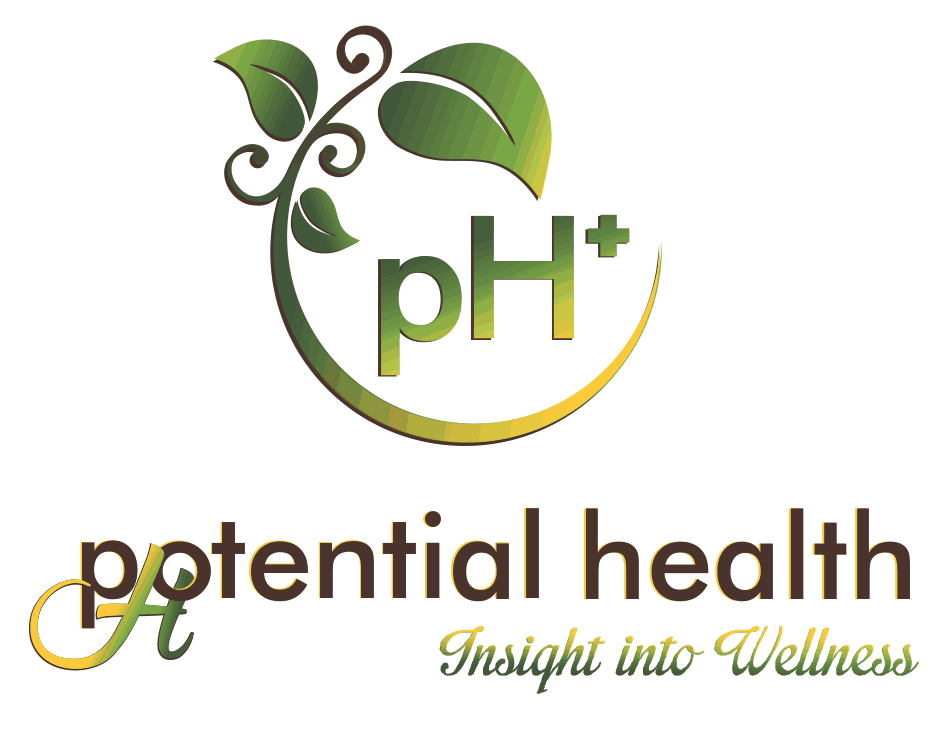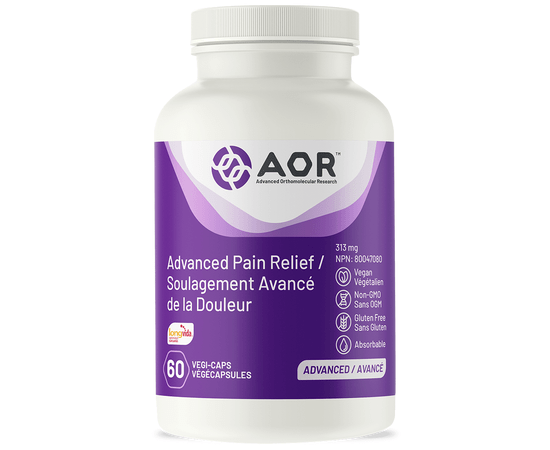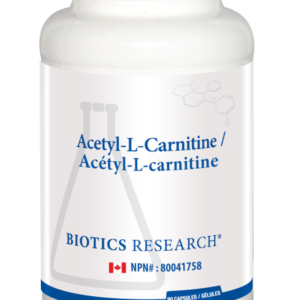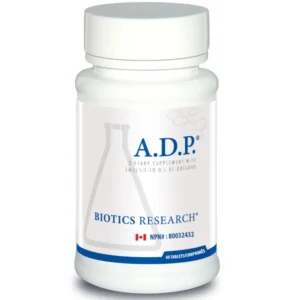Description
Advanced Pain Relief AOR NPN 80047080
Details
Advanced Pain Relief was designed as a combination of well-studied and natural ingredients to target the causes of pain: namely, muscle tightness and inflammation. L-Carnitine, ginger, and curcumin have all been shown to help reduce muscle cramping, pain and inflammation, including menstrual-related cramping and headaches.
It can also support muscle recovery after intense activity. Ginger has even been shown to be as effective as over-the-counter anti-inflammatories, known as NSAIDs. Magnesium and California poppy provide additional mood support and relaxation effects, which are particularly important for those suffering with chronic pain.
Whether you are an athlete who experiences frequent muscle tension or someone who experiences chronic muscle pain and discomfort, Advanced Pain Relief is useful for relaxing tight neck and back muscles and relieving general inflammation.
AOR Advantage
Advanced Pain Relief recognizes the multifactorial nature of pain, addressing cramping, inflammation, and even the perception of pain, to provide a well-rounded option for relief.
Label Information
Supplement FactsServing Size: Three Capsules
Magnesium (bisglycinate)
100 mg
Optimized Curcumin* (Curcuma longa root)
40 mg
California Poppy extract (Eschscholzia californica)
20 mg
L-Carnitine (tartrate)
680 mg
Ginger extract (Zingiber officinale)
100 mg
* LONGVIDA® is a registered trademark of Verdure Sciences Inc. International patent pending.
Non-medicinal Ingredients: Stearic acid, ascorbyl palmitate, soy lecithin, maltodextrin, gum arabic, microcrystalline cellulose, and silicon dioxide.
Capsule: hypromellose.
Research Facts
Pain & Inflammation:
Study 1:
The anti-inflammatory effect of ginger is hypothesized to contribute to the pain-modulating effect of this plant. This double-blind, placebo-controlled, randomized study was tasked with examining the effects of ginger supplementation on muscle pain, induced by eccentric (lengthening) exercises. This study was divided into two – the first study used raw ginger and the second used heat-treated ginger supplements. Participants consumed their ginger supplements for 11 days and performed 18 eccentric actions of the elbow flexors to induce pain and inflammation. Pain intensity, perceived effort, plasma prostaglandin E(2), arm volume, range of motion, and isometric strength were assessed prior to and for three days after exercise. The results did not show a significant difference between the heat-treated and raw ginger studies in pain reduction, however, a significant difference was observed between the ginger supplementation and placebo groups on muscle pain caused by eccentric exercises.
https://www.ncbi.nlm.nih.gov/pubmed/20418184
Study 2:
This controlled, double-blind, double-dummy, cross-over study with a wash-out period, in patients with osteoarthritis of the hip or knee, compared the effectiveness of ginger extract (170 mg) with placebo or ibuprofen (400 mg) administered three times a day; Acetaminophen was used as rescue medication throughout the study.
The researchers rank the efficacy of the three groups in the following order: ibuprofen>ginger extract>placebo, based on the visual analog scale (VAS) of pain. A significant effect of ginger supplementation was observed by explorative statistical methods.
https://www.ncbi.nlm.nih.gov/pubmed/10607493
Study 3:
An evidence-based guideline published by the Quality Standards Subcommittee of the American Academy of Neurology and the American Headache Society in 2012, looked at the available evidence for nonsteroidal anti-inflammatory drugs (NSAIDs) or complementary treatments for the prevention of episodic migraines in otherwise healthy adults. The authors analyzed publications over a 10-year period, which included 49 articles on migraine prevention, of which 15 articles were classified as involving non-traditional migraine therapies. Among the other treatments, magnesium supplementation was considered possibly effective for migraine prevention.
https://www.ncbi.nlm.nih.gov/pubmed/22529203
Study 4:
The antioxidant and anti-inflammatory effect of curcumin has been well established in many pre-clinical models. This randomized, double-blind, placebo-controlled clinical trial aimed to evaluate the effects of an extract of turmeric, standardized to curcumin content, on osteoarthritis of the knee. 160 participants were randomly assigned to a placebo or a curcumin group, along with a standard drug regimen; each patient was assessed at timepoints 0, day 60 and day 120, using the visual analog scale (VAS) and Western Ontario and McMaster Universities (WOMAC) Osteoarthritis Index. The results show statistically and clinically significant improvements in VAS and WOMAC scores, as well as a significant improvement in biomarker levels of pro-inflammatory and oxidative stress markers, leading the researchers to conclude that chronic curcumin supplementation suppresses inflammation and brings clinical improvements in patients with osteoarthritis of the knee.
https://www.ncbi.nlm.nih.gov/pubmed/27761693
Study 5:
Another randomized, double-blind, controlled, prospective study compared the effect of curcumin (1000 mg/day), in combination with diclofenac (an NSAID at 75 mg/day) against a placebo with diclofenac. The Visual Analog Scale (VAS) for pain and Knee Injury and Osteoarthritis Outcome Score (KOOS) were used to evaluate the participants’ symptoms every month for three months. The KOOS was analyzed in 5 categories symptom, pain, function in daily living, function in sport and recreation, and knee-related quality of life. The results show a trend towards improvement in KOOS in the curcumin/diclofenac group, compared to the placebo/diclofenac group.
https://www.ncbi.nlm.nih.gov/pubmed/23964444
Another study compared the efficacy of curcumin to ibuprofen, another NSAID, in pain reduction and functional improvement. 367 participants, with knee osteoarthritis, were randomly assigned to receive either ibuprofen (1200 mg per day) or curcumin (1500 mg per day) for 4 weeks and monitored by WOMAC total, WOMAC pain, WOMAC, stiffness, and WOMAC function scores, along with any adverse events. There was no significant difference between the groups, with both groups showing improvements in the assessment of pain reduction and functional improvement. Additionally, significantly more adverse events of abdominal pain/discomfort were observed in the ibuprofen group.
https://www.ncbi.nlm.nih.gov/pubmed/24672232
Study 6:
This study specifically looked at the efficacy of longvida curcumin, the form of curcumin in AOR’s Advanced Pain Relief. Patients with osteoarthritis of the knee were randomized to receive either a placebo with ibuprofen (400 mg once daily) or 400 mg Longvida twice daily, delivering 160 mg of curcumin per day) for 90 days. WOMAC and VAS were used for clinical assessment of knee pain and function. The degree of knee flexion and swelling were also noted, along with biomarkers of inflammation. Significant improvement in WOMAC and VAS scores in both ibuprofen and longvida groups were observed, indicating comparable efficacy of Longvida curcumin and ibuprofen. The researchers conclude that “160 mg daily was found to be effective and safe in alleviating symptoms in patients suffering from knee osteoarthritis”.
https://www.ncbi.nlm.nih.gov/pmc/articles/PMC6559772/
Study 7:
This randomized, placebo-controlled study evaluated the effect of Longvida curcumin versus placebo against exercise-induced muscle damage (EIMD), delayed onset muscle soreness (DOMS), and activities of daily living (ADL) in healthy subjects. Participants were supplemented with Longvida curcumin (400 mg per day) or rice flour (placebo) two days before to four days after EIMD and assessed for any effects on creatine kinase and inflammatory cytokines.
The results obtained show a significant difference between the placebo group and curcumin supplementation in CK and inflammatory markers, suggesting that curcumin supplementation reduced biological inflammation during recovery, after EIMD, which may translate to faster recovery and improved functional capacity during subsequent exercise sessions.
https://www.ncbi.nlm.nih.gov/pubmed/27051592
Study 8:
This randomized, placebo-controlled study evaluated the effect of L-carnitine supplements in patients with nonalcoholic steatohepatitis (NASH), a metabolic disorder of the liver. Patients were randomized to receive either a placebo or L-carnitine (1000 mg twice a day) for 24 weeks and assessed for liver enzymes, lipid profile, fasting plasma glucose, C-reactive protein (CRP), tumor necrosis factor (TNF)-alpha, homeostasis model assessment (HOMA)-IR, body mass index, and histological scores. At the end of the study, L-carnitine-treated patients showed significant improvements in the following parameters: liver enzymes, total cholesterol, low-density lipoprotein (LDL), high-density lipoprotein (HDL), triglycerides, glucose, HOMA-IR, markers of inflammation – CRP, TNF-alpha, and histological scores. The researchers conclude that L-carnitine supplementation is useful in reducing markers of inflammatory biomarkers ad improving liver function in patients with NASH.
https://www.ncbi.nlm.nih.gov/pubmed/20068559
Review 1:
Chronic pain sufferers tend to experience poor sleep patterns, which is then followed by days with even great pain, which continues the cycle of increased pain and lack of sleep. California poppy has long been used in traditional medicine for its analgesic, anxiolytic and sedative properties, with no reports of addiction to this plant. This review reports pre-clinical and clinical use of California poppy in patients with moderate-to-severe chronic pain – suffering from back pain, joint pain, arthritis, cervical pain, and fibromyalgia with or without the myofascial syndrome, with results showing approximately 50% of patients having a significant clinical benefit in pain relief and/or sleep, compared to those not receiving California poppy. Adding California poppy to the standard of care further improved the response of the patients.
http://www.multibriefs.com/briefs/icim/poppy.pdf
Menstrual Health:
Study 1:
In this double-blind comparative clinical trial, 150 participants with primary dysmenorrhea were alternatively divided into three groups: group one – supplementation with ginger (250 mg, four times a day); group two – mefenamic acid (an NSAID, at 250 mg per day); group three – ibuprofen (400 mg per day). The purpose of this study was to compare the effects of ginger on the NSAIDS for effects against primary dysmenorrhea, pain relief, and satisfaction – this was done after one menstruation cycle.
The results show a significant decrease in the severity of dysmenorrhea in all three groups, with no significant difference between the groups, suggesting that ginger supplementation is as effective as NSAIDs (mefenamic acid and ibuprofen) in reducing symptoms associated with primary dysmenorrhea.
https://www.ncbi.nlm.nih.gov/pubmed/19216660
Study 2:
A systematic review and meta-analysis of the clinical effect of oral ginger supplementation on dysmenorrhea were published in 2016. This analysis included randomized, controlled trials comparing ginger to either a placebo or an active treatment. Six trials and 538 participants were included in the analysis. The results show that ginger supplementation ss more effective than a placebo in reducing pain severity, and as such could be an effective therapeutic option for menstrual pain in dysmenorrhea. The analysis also confirms that ginger is just as effective as NSAIDs – mefenamic acid and ibuprofen – against dysmenorrhea.
https://www.hindawi.com/journals/ecam/2016/6295737/
Study 3:
Curcumin and its anti-inflammatory properties are well established. In this randomized, double-blind, placebo-controlled study, participants suffering from premenstrual syndrome (PMS) received placebo or curcumin – two capsules daily for seven days before menstruation and for three days after, for three successive cycles. The baseline level of PMS symptoms before intervention did not differ between groups. While after three consecutive cycles of treatment with curcumin, the total severity of the PMS score had reduced. The authors conclude that there is “a potential advantageous effect of curcumin in attenuating severity of PMS symptoms, which were probably mediated by modulation of neurotransmitters and anti-inflammatory effects of curcumin”.
https://www.ncbi.nlm.nih.gov/pubmed/26051565
Gastrointestinal Upset:
Study 1:
The effect of ginger on nausea, vomiting, and general upset stomachs is well established. This meta-analysis of randomized, controlled trials compared the effect of ginger supplementation with placebos to determine if supplementation with ginger could prevent postoperative nausea and vomiting. The analysis included 5 clinical studies, including 363 participants. The results of the meta-analysis concluded that supplementation with 1 g of ginger is more effective than a placebo at preventing postoperative nausea and vomiting.
https://www.ncbi.nlm.nih.gov/pubmed/16389016
Study 2:
This randomized, double-blind, placebo-controlled study compared the effectiveness of ginger to placebo in children and young adults suffering from chemotherapy-induced nausea and vomiting. Bone sarcoma patients with 60 chemotherapy cycles of cisplatin/doxorubicin received either placebo or ginger capsules, in addition to conventional anti-emetics.
The results show a significant decrease in the severity of nausea experienced by the treatment group, compared to the placebo group. Additionally, acute moderate to severe vomiting was significantly more in the control placebo group. Delayed moderate to severe nausea and vomiting was significantly more in the placebo group as well, suggesting that ginger root efficiently reduces the severity of acute and delayed chemotherapy-induced nausea and vomiting, when used in addition to anti-emetics.
https://www.ncbi.nlm.nih.gov/pubmed/20842754
Study 3:
The issue with many natural health products, apart from bioavailability, is a lack of clinical evidence in pregnant and breastfeeding women. This systematic review of clinical evidence was designed to determine the safety and effectiveness of ginger in the treatment of pregnancy-induced nausea and vomiting. Six studies and 675 participants and a prospective observational cohort study were included in the analysis and for evaluation of efficacy, only double-blind, randomized, controlled trials were included in the analysis. The results confirm the effect of ginger against nausea and vomiting, as superior to placebo controls; two of the studies also compared ginger to vitamin B6, showing similar efficacy in relieving the severity of nausea and vomiting episodes.
https://www.ncbi.nlm.nih.gov/pubmed/15802416
Study 4:
Curcumin is widely known as one of the pharmacologically active ingredients found in turmeric. It is well known for its anti-inflammatory properties. This randomized, double-blind, multicenter, placebo-controlled study evaluated the efficacy of curcumin as maintenance therapy in patients with quiescent ulcerative colitis (UC). 45 patients received curcumin (1 g twice daily), plus sulfasalazine (SZ) or mesalamine, and 44 patients received a placebo sulfasalazine (SZ) or mesalamine for six months. Clinical activity index (CAI) and endoscopic index (EI) were determined at entry, every two months (CAI), at the conclusion of a six-month trial, and at the end of a six-month follow-up.
The results show a significant difference in recurrence rates between the placebo group (20.51%) versus the treatment group (4.65%). Additionally, curcumin supplementation improved both CAI and EI, thereby suppressing the morbidity associated with UC, suggesting that curcumin could be a promising therapeutic option for maintaining remission in patients with quiescent UC.
https://www.ncbi.nlm.nih.gov/pubmed/17101300




